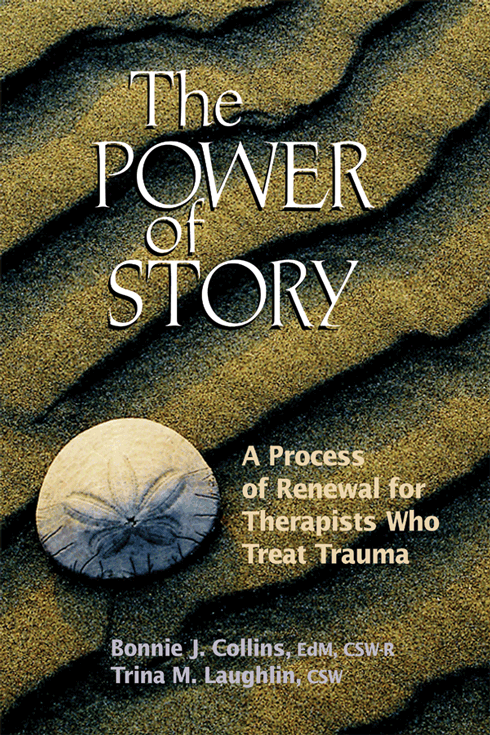A process of renewal for therapists who treat trauma
The Power of Story provides a self-care process to help prevent and alleviate vicarious trauma. The stories illustrate and acknowledge that the very nature of trauma therapy exposes therapists to vicarious trauma. The stories also provide hope and encouragement to those who are story listeners.
Providing therapeutic help to someone who has suffered trauma puts the therapist at risk for vicarious trauma. Unlike burnout or compassion fatigue, vicarious trauma leaves the therapist with symptoms of either acute or hypervigilant and agitated. They may have lost the desire to pursue their work or other activities in their lives that generally give them joy. Conversely, they may work night and day, desperately trying to find the “correct” approach to a particular case or personal life challenge. Relationships with family, friends, and colleagues may suffer. For some, a pervasive sense of inadequacy paralyzes them and makes them inflexible in their work. Like the trauma responses in our clients, vicarious trauma is very real and troubling. Vicarious trauma negatively impacts trauma therapists in mind, body, and spirit.
Therapists are human, too. When we hear the unbearable and paint a mental picture of the unseeable, we push ourselves beyond our normal range of coping. But when we share the pain we have heard with one another – much as we embraced the gift in the trauma for our clients – we become heartened to do it again.
In our seminars on how to cope with vicarious trauma, we read one of our stories to our audience, which almost immediately triggers stories from them. Everyone involved in this process found the idea of recording stories in a journal of healing exciting. We would like you, the reader, to experience these stories. We hope that you will find they trigger your own.
Table of Contents
Prologue: Dear Fellow Therapists
Part One: On Being Real
• Opening Poem: Set Aside the Rules
• Being Real and the Risk for Vicarious Trauma
• Stories
o A Mother’s Thanks
o Godmothers
o The Dance of Birth
o I’m Not Black
o Who Mirrors Who?
o Mapmaker
Part Two: Witnessing the Sacred
• Opening Poem: Existing on the Edge
• Soul Fusion and Vicarious Trauma
• Stories
o Winds of Change
o Choosing Home
o Trauma Rug
o If I Could Only Smile
o Twist of the Knife
o The Story of Jacob
Part Three: Making a Difference
• Opening Poem: I Stand in a Forest Differently
• How Finding Meaning in Our Work Relieves Vicarious Trauma
• Stories
o Flower Shop Daughter
o Women of Stature
o Security Blanket Rose
o The Bag of Rocks
o Bridge to Peace
o Moonbeam Dialogues
Part Four: Self-Awareness Writing Rituals
• Introduction to Writing Rituals
Part Five: Story Listeners Gatherings
• Story Gathering Retreat 1
• Story Gathering Retreat 2

